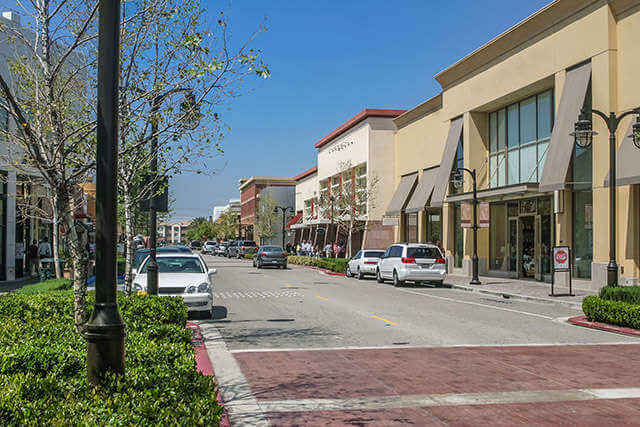Franchise Encroachment – The issues and solutions
Point – Counterpoint
David Kaufmann and Robert Zarco
There is significant debate on the issue of encroachment in franchising. But what is encroachment? Simply stated, encroachment is “trespassing” on the property of another. The issue of encroachment in franchising, though, is rarely simple. Over the past few years the debate between franchisors and franchisees has tended to move past any simple definitions and has focused on a franchisee’s explicit or implicit rights to a protected market in which to sell their goods and services.
Should a franchisee always have a protected area around their location where no intra-brand competition is allowed? Does the franchisee’s sale of goods or services include every imaginable or yet unimagined method of distribution, or just the method of distribution licensed to them? Does the franchisor have a duty to compensate a franchisee for any real or potential reduction in revenue when a franchisor allows additional locations to open, or establishes different methods of selling goods or services that may compete with a franchisee? What happens if the new location is owned by the same franchisee that has the original location? Is that encroachment also?
For some answers – or maybe to raise some additional questions – I turned to two of the most recognized names on the legal side of this debate:
- David Kaufmann, Senior Partner, Kaufmann, Feiner, Yamin, Gilden & Robbins (NYC), and
- Robert Zarco, Partner, Zarco & Pardo (Miami).
1. What do you view as the most significant issues concerning encroachment in franchising?
David Kaufmann
The most significant issues concerning encroachment in franchising continue to be:
- The Internet/World Wide Web/e-commerce and the extent such channels constitute “virtual encroachment”
- The contention of franchisees that they are entitled to a “protected market area” despite the contrary explicit terms of their franchise agreements (especially those which afford “site only” or limited territorial protection)
- Franchisor dual distribution programs
- A franchisor’s placement of units in non-traditional or seasonal locations (such as universities, military bases, workplaces, and expositions)
These “issues” are not true disputes as to what the agreement says (or does not say), but rather because of franchisee unhappiness with the previously agreed to terms.
Robert Zarco
Franchisees view encroachment as any activity by the franchisor that may reduce their ability to earn profit from their locations. These would include:
- Placing a competing unit operated by the franchisor or another franchisee in close proximity to an existing unit. What if the new unit is given to the already existing franchisee; shouldn’t that also be considered encroachment?
- Taking away sales of an existing unit by mailing product or providing services from outside the franchisee’s area into his market and trading area through the use of the Internet or other means.
- Losing sales to another franchisee from a different territory when customers in the franchisee’s area call another franchisee outside of the area.
- The development of alternative distribution channels such as supermarkets, kiosks, convenience stores, etc.
- Sister brand encroachment – a franchisor acquires a competing brand, and the franchisor’s marketing and trade secrets are shared with franchisees from the other brand.
Who would have even contemplated that some of the above forms of encroachment would ever arise?
2. What is the solution?
David Kaufmann
As always, the solution to franchisee unhappiness over claimed franchisor “encroachment” is for the franchisee to truly understand – with the assistance of competent franchise counsel – the nature and extent of the territorial protections, if any. These provisions are reviewed three times by a prospective franchisee – first in the FDD, second in the specimen franchise agreement appended to the FDD, and third in the actual franchise agreement executed by the parties. All too often, franchisees later complain of encroachment and suggest that they really did not pay attention to the subject franchise agreement’s territorial provisions before signing the contract. This is truly unfortunate, for realistic expectations – framed by a full and thorough understanding of the franchise agreement acquired before execution thereof – will almost always militate against subsequent franchisee unhappiness over those contractual terms.
Robert Zarco
The franchisor that is going to benefit from additional locations should share in the diminution of profits being sustained by the existing franchisee. This can be accomplished through a direct financial contribution being made by the franchisor, reduction in the royalty rates, or having the new franchisee pay a portion of its royalties to the impacted franchisee. The franchisee who is in closest proximity to the new unit should have the right of first refusal to obtain the new unit based on objective criterion which the franchisor has established.
The above solution contemplates accepting the premise that a franchisor should be allowed to grow and expand! However, the impacted franchisee would prefer that no growth occur within the existing franchisee’s territory.
3. Is the franchisor less competitive against non-franchisor competitors because of the location concerns of its franchisees?
David Kaufmann
Of course franchisors frequently find themselves unable to compete against their non-franchisor competitors due to location concerns of their franchisees. Contrary to popular franchisee myth, franchisor executives do not come to work each morning looking to do battle with their franchisees. They come to work looking to do battle with the competition. And the competition, all too often, is able to respond to changes in technology, demographics, and consumer demand far more quickly than franchisors weighed down by antiquated franchisee agreement territorial provisions and/or franchisees whose “location concerns” are rooted in desire rather than contractual right. (Is it a coincidence that Starbucks avoided franchising while achieving dominance through nationwide – and rapid – market saturation?)
Robert Zarco
Absolutely; however, unlike non-franchised companies who use their own money to expand and thus can spend and allocate it as they choose, there are different equitable considerations to take into account in a franchise environment. The franchisee’s rights and interests in their investments must always be considered by the franchisor. If the franchisor wishes to grow without regard to the impact it will have on its franchisees, it should purchase all the units back and become a complete corporate operation.
4. Do franchisees have an unrestricted right to claims of encroachment, regardless of the language of the contracts?
David Kaufmann
If franchise agreement territorial provisions are clear, well drafted, explicit, and adhered to by the franchisor, then technically, franchisees have no claim of encroachment whatsoever against their franchisors. However, it is unfortunately the case that some members of the judiciary – using as cover the “implied covenant of good faith and fair dealing” – substitute their notions of what is “fair” for franchisees separate and apart from what the contract actually says. This destructive tendency of some jurists contravenes the basic principle that what was “fair” when the contract was signed is “fair” today.
Robert Zarco
Absolutely not: The contractual language is crucial in determining whether a franchisee can assert and monitor a claim against its franchisor for Breach of Contract, Breach of Implied Covenant of Good Faith and Fair Dealing, etc. If the franchise agreement contains language that clearly and specifically sets forth that the franchisor has reserved for itself the right to place a competing unit in close proximity to an existing franchisee’s location, regardless of impact, then there is substantial legal precedent to uphold the franchisor’s right to encroach. If, however, the franchise agreement fails to specifically set forth the respective rights of the parties as to the location or expansion of future stores, then the franchisee will be free to allege and maintain express and implied contract claims.
5. Are your feelings the same when it comes to e-commerce activities of the franchisor?
David Kaufmann
Franchisor e-commerce activities are just another subset of contractual market exploitation divisions created by the franchise agreement. If the franchise agreement permits the franchisor to engage in e-commerce to the exclusion of franchisees – or with limited participation by, or recompense to, franchisees – then franchisees should not be heard to complain when such activity transpires. The adage remains the same: read and understand your franchise agreement before signing it!
Franchisees acquire only the limited right to sell and furnish their franchisors’ goods or services through one or more defined distribution modes (such as retail units or assigned accounts) – and not through every other conceivable distribution mode now or hereafter developed. The Internet – which traverses all boundaries – is the best example of why this must be. If franchisees felt free, under some “implied ” but nowhere memorialized “right,” to establish websites and offer their products/services worldwide – and they are not thanks to fairly expansive trademark and other restrictions found in most franchise agreements – then not only would the ability to devise a coherent e-commerce strategy disappear (to the delight of competitors), but the system would quickly disintegrate thanks to a plethora of conflicting websites; franchisees “virtually” encroaching on other franchisees (who you just know will blame the franchisor); disparate pricing, fulfillment and return policies; and, in general, e-chaos. If franchisees desire distribution rights beyond those explicitly granted by their franchise agreements, they should negotiate for them before the relationship ensues. Post-contractual power plays for implied territorial or distribution rights are crippling – if not altogether fatal – to a franchisor’s ability to rationally administer a network and compete with others.
Robert Zarco
Overall and generally yes, with a caveat. In E-commerce, it is difficult to limit the use of E-commerce to one market area only. Since it is generally global in nature, it seems patently unfair to completely prevent a franchisor from carrying on its business in a manner that could benefit it and its system as a whole on a global basis, but could be detrimental to a particular franchisee.
In this situation, the franchisor should work out a fair and reasonable compensation package to reduce the impact such expansion would have on the franchisee, especially the potentially large reward and benefit that the franchisor could receive.
6. Would Iowa-type legislation, providing for a minimum distance or impact formula, be a solution to franchisee concerns?
David Kaufmann
Iowa-type franchise relationship legislation – addressing encroachment issues by stipulating a minimum distance between units or impact formula – may at first blush appear attractive to resolve franchisee “encroachment” concerns. But, in reality, it would prove a bane to both franchisors and franchisees. Government dictating just where retail units should or should not be situated did not work in the former Soviet Union, and will not work here. If such legislation is enacted on a widespread basis, the end result would be many franchisors withdrawing from franchising altogether and substituting instead, with relatively great ease, joint venture protocols. So it is that many franchise opportunities would disappear, to the detriment of many individuals desirous of obtaining franchises.
Robert Zarco
Minimum distance restrictions are easier to apply and measure due to a more objective form of determination than impact formulas. Impact measurements are the more appropriate way to really compensate for true impact; however, what factors do you take into account to measure impact? You just can’t rely on gross sales comparisons between different years! What if in addition to the impact resulting from the new store, the existing franchisee’s sales suffer from external factors, such as new and different competition, taste differences, road constructions, economy, gain or loss in traffic generations, etc. This form or method of calculating impact is much more complex and subjective, although ultimately more accurate. As such, I support the Iowa legislation and HR3308’s methodology as the best method available today!
7. Would encroachment formulas built into relationship laws improve the lot of franchisees in any way?
David Kaufmann
In the short term, encroachment formulas built into franchise relationship laws could marginally improve the lot of existing franchisees by keeping intrabrand competitors away. If I owned the first McDonald’s franchise in Manhattan, it might appear logical that I, too, would want to limit McDonald’s ability to franchise others on the island. But this would be a grave error on my part. For the secret to franchising’s success is, and has always been, marketplace saturation sufficient to outstrip and preempt the competition, to foster broad brand name recognition, to yield significant collective purchasing power, and most critically, to garner optimal advertising penetration within any given market. If a market is underserved by too few franchisees as a result of encroachment formulas built into franchise relationship laws, franchisees in that market will quickly find themselves at a significant competitive disadvantage with little potential for brand growth.
Robert Zarco
Encroachment formulas built into relationship laws will improve the lot of franchisees, because the profile of the franchisee today is very different than those from the past. Today’s franchisees are much more sophisticated and aware of their legal rights. As such, any assurance that they will be fairly compensated in the event of encroachment will raise the franchisor’s credibility within the system, and will naturally attract a greater number of applicants. Once the word gets out that a franchisee who has suffered impact will get compensated in the manner (fairly, of course) set forth in such relationship law, more and more franchisees of a higher caliber will flock to that system.
8. If ceasing to offer franchises is not a solution for most franchisors, if encroachment legislation is passed, what course would you recommend for franchisors?
David Kaufmann
I would respectfully submit that ceasing to offer franchises is a most viable solution for many franchisors confronting hostile “encroachment” legislation. Many of our nation’s major franchisors have for a while now been considering alternatives to the franchise mode should such legislation be enacted. Almost all of them would be able to very quickly revert to a joint venture protocol, pursuant to which they would contribute to the capital costs of the subject unit along with the joint venture partner (formerly the franchisee) and, in return, capture some of the unit’s profits (in addition to royalties). While this is not an ideal scenario, it certainly would be preferable to having the competition outpace your network because you are limited by legislation to a specified number of units and no more. Most unfortunately, smaller and start-up franchisors could not likely avail themselves of the joint venture paradigm but, instead, would either franchise out in a limited manner and thus at a gross competitive disadvantage or, in the alternative, be precluded from franchising at all because of that competitive disadvantage (could this be why renowned chains such as Starbucks, which achieved dominance through market saturation, shunned franchising and grew strictly through company-owned units?).
Robert Zarco
If encroachment legislation is passed, franchisors must follow and abide by its laws! Ceasing to offer franchises is not the solution, because then franchisors will have their stockholders and investors rioting at their doors. Threats of no new franchises in Iowa were cast, and yet Iowa is flourishing and franchises are continuing to open rapidly.
Franchisors should try to take a proactive role with the franchisee organizations and associates of its own system and join forces to align their goals. The “us and them” philosophy must stop! Franchisee associations are invaluable vehicles for an astute franchisor to lobby to gain support for the easy implementation of new franchisor policies.
Editor – End of Kaufmann/Zarco comments
The dispute over the issue of encroachment is not going to be settled any time soon. Various bills have been introduced at times in an attempt to establish governmental criteria for encroachment. What is most interesting in the debate is that franchisee support for protective legislation is not universal. The Franchisee Advisory Council of the International Franchise Association, representing more than 30,000 franchisees operating in over 70 different industries, has opposed such legislation.
Do you have questions about franchising your business?
MSA Worldwide provides expert guidance on building a successful and sustainable franchise business. Contact us today for a complimentary consultation.







